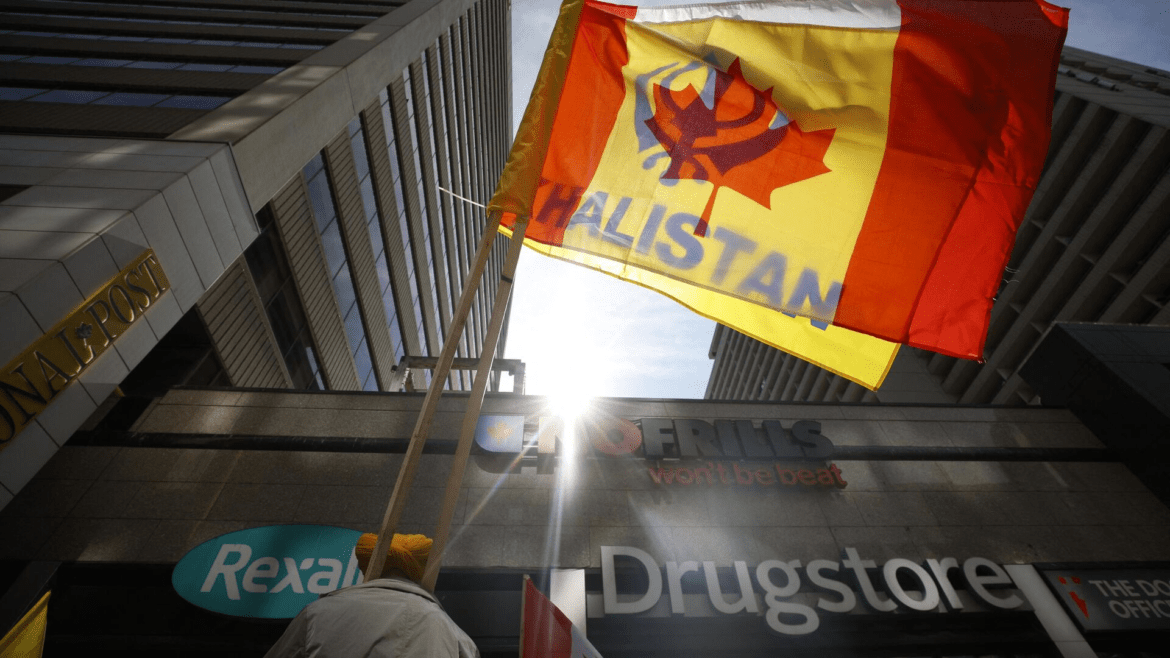AI Generated Summary
- In a candid discussion at the Montreal Council on Foreign Relations, Verma underscored India’s concerns regarding the resurgence of the Khalistan issue and elucidated what he termed as New Delhi’s ‘red lines.
- The statements from India’s top diplomat in Canada serve as a stark reminder of New Delhi’s unwavering stance on the matter, signaling that India will not tolerate external interference in its internal affairs.
- The crux of Verma’s message lies in the assertion of Indian sovereignty and the rejection of external interference in India’s internal affairs.
In the ongoing saga of diplomatic tensions between India and Canada, the latest chapter has been unveiled by none other than India’s High Commissioner to Ottawa, Sanjay Kumar Verma. In a candid discussion at the Montreal Council on Foreign Relations, Verma underscored India’s concerns regarding the resurgence of the Khalistan issue and elucidated what he termed as New Delhi’s ‘red lines.’
The backdrop to this dialogue is fraught with controversy, as Canadian Prime Minister Justin Trudeau finds himself at odds with Indian assertions regarding the alleged killing of Indian-designated terrorist Hardeep Singh Nijjar. Canadian investigators have notably declined to corroborate Trudeau’s claims that Nijjar met his demise at the hands of “Indian agents” last June. This denial has dealt a blow to Trudeau’s stance on the matter.
Verma wasted no time in addressing what he described as Canada’s “lack of understanding” regarding India’s apprehensions over the Khalistan issue, a contentious topic that has resurfaced on foreign soil. He emphasized the gravity of the issue, labeling it as a “big red line for India.”
The crux of Verma’s message lies in the assertion of Indian sovereignty and the rejection of external interference in India’s internal affairs. He firmly stated, “Indians will decide what will happen to India, Indians will decide the fate of India, not the foreigners.” This statement underscores India’s stance against external forces attempting to influence its domestic affairs, particularly concerning the Khalistan movement.
Verma went further, suggesting that those abroad who harbor intentions of shaping India’s destiny should return to the country and participate in the democratic process. This call for engagement underscores India’s insistence on internal decision-making free from external influence.
The High Commissioner also delineated his “red lines,” notably citing national security concerns emanating from Canadian soil. He warned against threats posed by elements within Canada, particularly those sympathetic to separatist movements like Khalistan.
Verma’s remarks come in the wake of India’s strong protest against the depiction of Prime Minister Narendra Modi behind bars during a Sikh procession in Ontario. The presence of pro-Khalistan elements, including designated terrorists, at the event has fueled tensions between the two nations.
India’s Ministry of External Affairs (MEA) swiftly condemned the use of violent imagery against Indian political leaders, emphasizing that democratic countries should not allow intimidation by radical elements under the guise of freedom of expression. The MEA reiterated its call for Canada to cease providing safe haven and political space to criminal and secessionist elements.
In a parallel narrative, Canadian Foreign Minister Melanie Joly reiterated Ottawa’s stance on the Nijjar case, despite a lack of evidence. Joly maintained that Canada stands by its allegations that Nijjar was killed by Indian “agents” and emphasized the importance of protecting Canadian sovereignty and the rule of law.
As diplomatic tensions persist between India and Canada, the Khalistan issue continues to be a flashpoint, testing the boundaries of diplomatic discourse and sovereignty. The statements from India’s top diplomat in Canada serve as a stark reminder of New Delhi’s unwavering stance on the matter, signaling that India will not tolerate external interference in its internal affairs.




